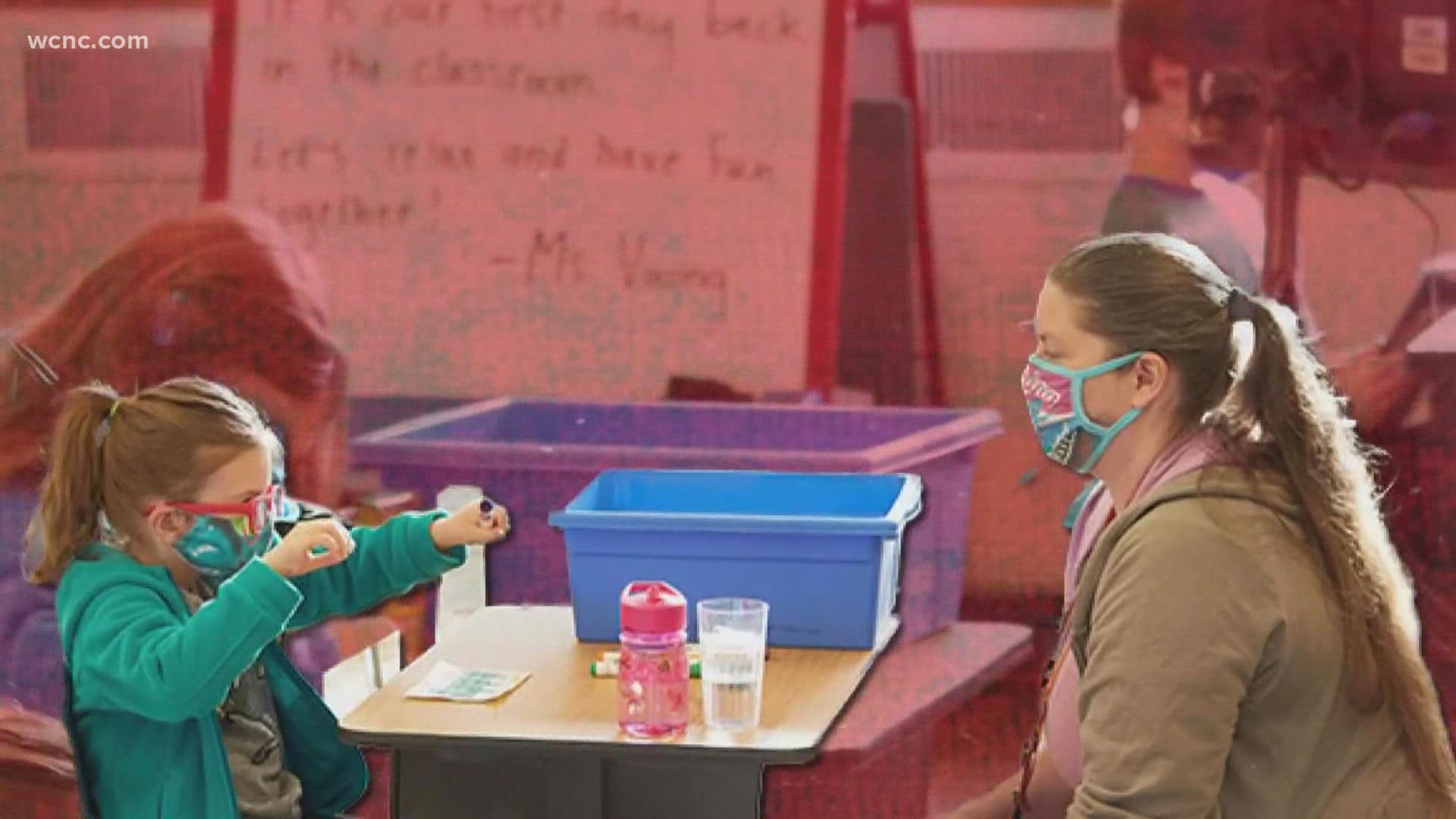CHARLOTTE, N.C. — North Carolina has seen the largest rise in daily new COVID-19 cases in the country, driven primarily by the omicron variant. Doctors say the variant isn't hitting any specific age group particularly hard, and everyone is susceptible to catching it because it's so contagious.
“Every human on the planet, short of someone who’s castaway on a desert island alone right now, is going to get exposed to this,” Dr. David Priest with Novant Health said.
According to the American Academy of Pediatrics, cases among children more than doubled in one week's time. With a big rise in new cases comes the concern for kids.
“As we’re seeing nationally, the number of positive cases in children that are reported daily or weekly far exceeds anything we’ve seen in the past in the pandemic,” Dr. Amina Ahmed, a pediatric infectious disease expert with Atrium Health Levine Children’s, said.
Doctors say anyone who has a fever, is congested or has a sore throat should probably assume they have COVID-19, even if they can’t easily get a test to confirm it. But that can get tricky with kids. Ahmed said they’re more likely to be asymptomatic, also known as silent spreaders.
The return to school after winter break could add even more fuel to the fire.
“What we’re seeing locally is that the percent positives in children are higher for children who are asymptomatic, probably being tested for exposures, than even the symptomatic,” Ahmed said.
She said the hospital is preparing to see more kids requiring hospital care, which typically lags a few weeks behind a sharp rise in cases.
Doctors say having as many students as possible fully vaccinated and boosted is even more important now. Pfizer boosters will likely be fully approved for kids 12 and up later this week, shortening isolation periods for more students.
Based on the latest CDC guidance, kids who are fully vaccinated and boosted when eligible don’t have to stay home if they’re exposed, just wear a mask for 10 days. If a student tests positive, they can go back to in-person learning after five days with five more days of mask-wearing if they’re not symptomatic.
“These kids that are down to age 12 can fall into this fully vaccinated group as the boosted people and can possibly return to school sooner so it’s going to be important for schools but also for the community,” Ahmed said.
With so many people exposed right now, testing lines have stretched miles with wait times several hours long. Atrium and Novant Health both expanded hours of operation as the state works to ramp up testing availability.
“I’d remind the community that our health care workers are not immune from getting sick or having sick family to care for,” Nikki Nissen, chief nursing officer for Novant Health said. “With community spread at an all-time high, do remember that health care workers are community members too and so we’re facing staffing challenges.”
North Carolina health officials said statewide, more than 87% of the people in hospital ICUs are unvaccinated. Even with signs that omicron is not causing severe illness, there are concerns the hospitals could be overwhelmed.
“Even if a smaller percentage of those cases end up in the hospital eventually, thinking about the number of people are unvaccinated, thinking about how quickly this is moving and everyone showing up at the hospital at the same time, it’s still a serious risk for both those individuals and the hospital system,” new health secretary Kody Kinsley said.
Experts predict we could hit the peak faster than in past surges, in mid-January.
“I think this will be a shorter surge than we’ve had with past variants but more challenging because of the rate of increase on this front side,” Dr. Katie Passaretti with Atrium Health said.
Contact Chloe Leshner at cleshner@wcnc.com and follow her on Facebook, Twitter and Instagram.
WCNC Charlotte is part of seven major media companies and other local institutions reporting on and engaging the community around the problems and solutions as they relate to the COVID-19 pandemic. It is a project of the Charlotte Journalism Collaborative, which is supported by the Local Media Project, an initiative launched by the Solutions Journalism Network with support from the Knight Foundation to strengthen and reinvigorate local media ecosystems. See all of our reporting at charlottejournalism.org.

